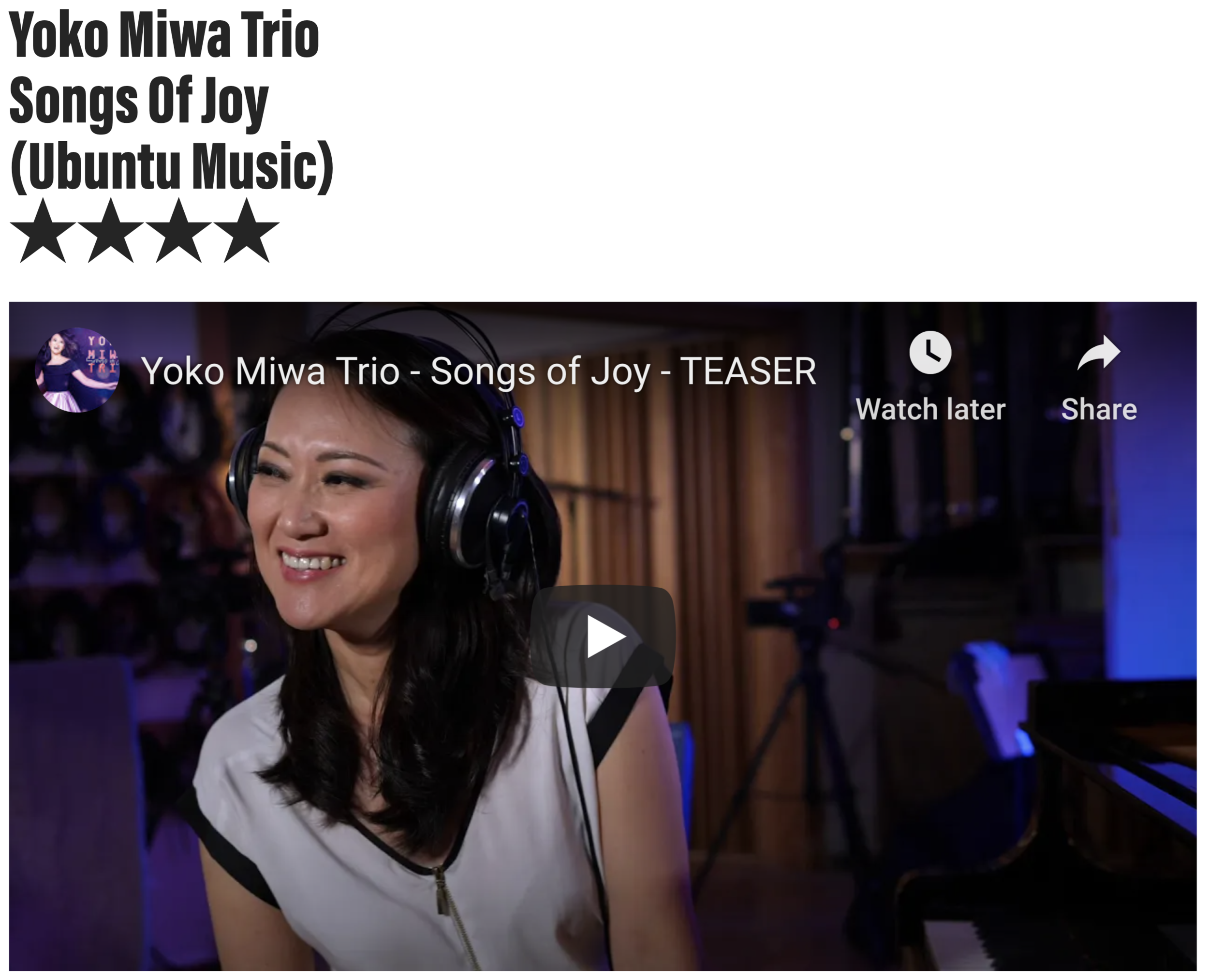REVIEW: Will Glaser / Climbing in Circles
Another 4 Stars for Yoko Miwa!
The Morning Star’s Chris Searle tells listeners to look out for '“the album’s beautiful finale.”
INTERVIEW: Chris Searle in conversation with jazz guitar maestro Rob Luft
Luft states, “Jazz has always been a music of resistance in the way it reacts to the turbulence of its times.”
ROB LUFT is a brilliant young Sidcup-born jazz guitarist who proudly told me: “I share my birthday with Jimi Hendrix!” He began learning guitar at six and as a boy was immersed in an eclectic storm of music. “I loved the 1990s grunge rock bands like Nirvana, yet very early on I was playing the blues of Robert Johnson and John Lee Hooker.”
His guitar teacher took him to hear his first jazz gig, with the Allan Holdsworth Trio: “I'll never forget hearing Holdsworth's virtuosity right up close at such a young age,” he remembered.
At 13 he bought his first jazz CD with his own money. “It was Coltrane playing My Favourite Things. I fell deeply in love with his music.” As for guitarists, he let on that his favourites are all Yorkshiremen - Holdsworth, John McLaughlin and Derek Bailey. “They represent three different strands of the art form to me, all equally important and valid.”
At 15 he started playing professionally in pubs, clubs and hotels, and joined the National Youth Jazz Orchestra, staying for five years. “I learned a lot from them and first met saxophonist Dave O'Higgins when he directed a NYJO rehearsal.”
It's Birmingham's O'Higgins who becomes his partner for the album O'Higgins and Luft Play Monk and Coltrane with drummer Rod Youngs and organist Scott Flanigan. “We wanted to select some lesser-known Monk gems and some tunes which Coltrane played but didn't compose, like Tommy Flanagan's bluesy swinger, Minor Mishap.”
From the opener, Coltrane's early ballad Naima, it is the beauty of sheer melody that dominates the album, then it is on to Jackie McLean's Little Melonae in which the scintillating intricacies of Luft's guitar work leap out, and in Monk's Locomotive, first as a quartet with Flanigan's powerful organ patterns then as an O'Higgins/Luft duo, Monk's melodism is expressed with a trans-Atlantic empathy.
Minor Mishap is a rocker with Youngs' uplifting drums giving the quartet a sense of rare levitation, and Coltrane's dedication to his saxophone confrere Sonny Rollins, Like Sonny, and Monk's witty Trinkle Tinkle both show 55-year-old Higgins' horn dexterity and how these two English jazz soloists of different generations mesh and drive each other onwards in loving tribute to two US masters, both born in the violent and segregated South of their nation.
I asked Luft how jazz musicians can take on the mounting racism in the backward times we are living through in both continents? He responded: “Jazz has always been a music of resistance in the way it reacts to the turbulence of its times. It's a powerful force for bringing people together. A live jazz gig is wonderfully unifying as musicians and audiences hang on to every live note. No one knows what will happen next in improvised music.”
So how crucial it is that we get back to that as soon as possible. Meanwhile, listen to Luft and O'Higgins play Monk and Coltrane with their exemplary energy, beauty and invention. It's a fine record that makes you feel there is no Atlantic there at all.
REVIEW: Andrew McCormack 'Solo'
The Morning Star’s Chris Searle writes, “This is an album which goes beyond the familiar to a new sonic land, provoking the ears to listen and respond.”




















